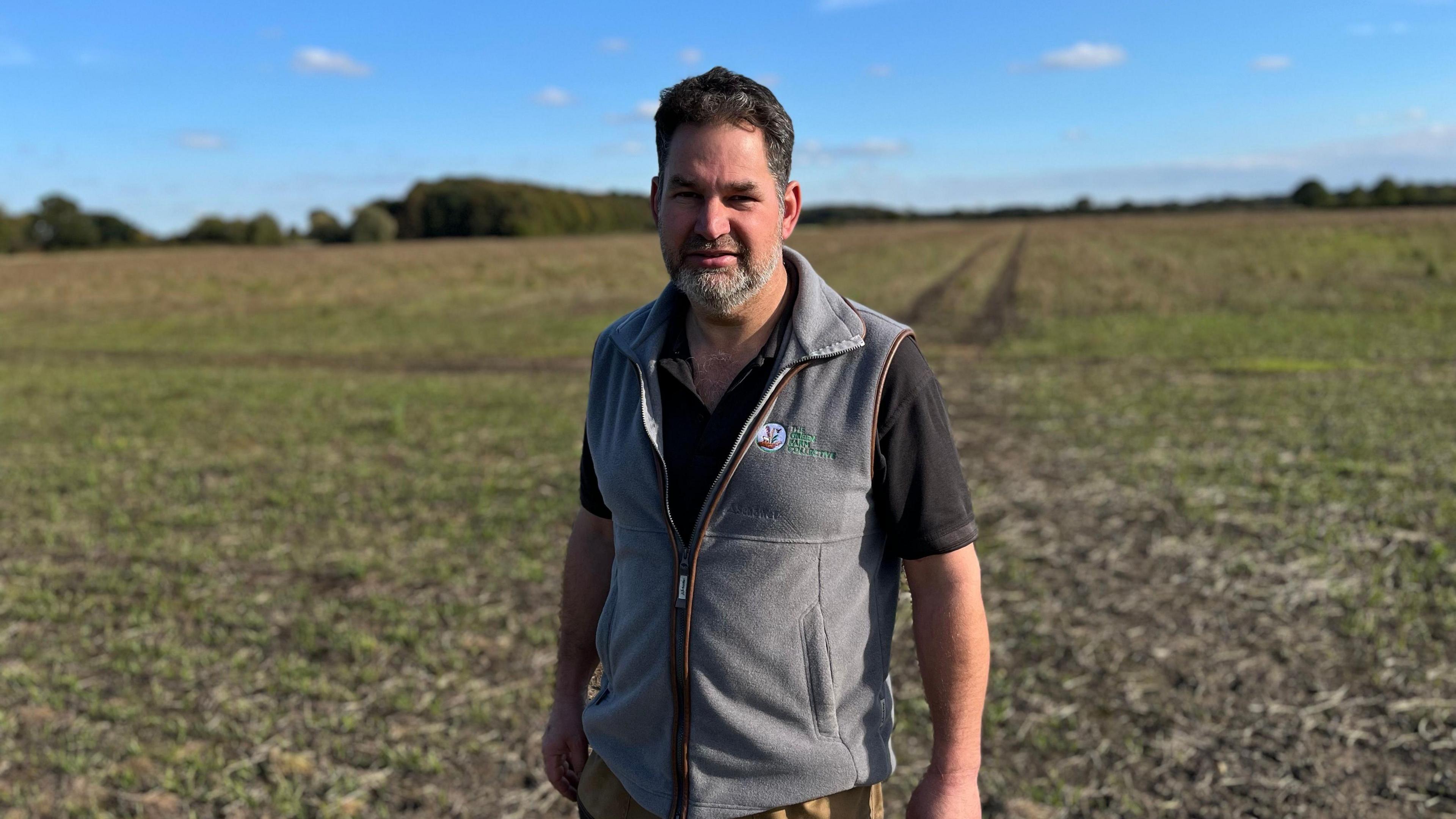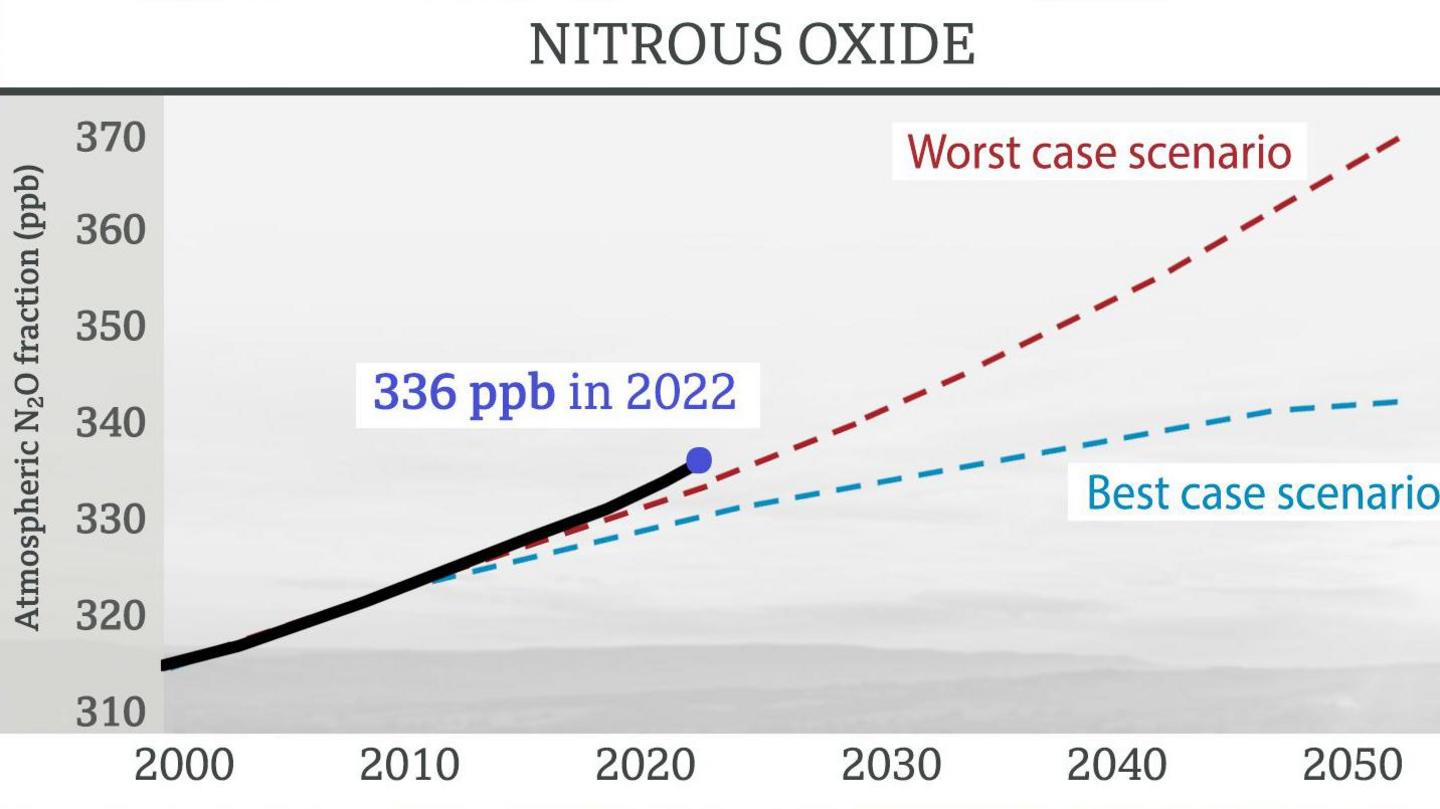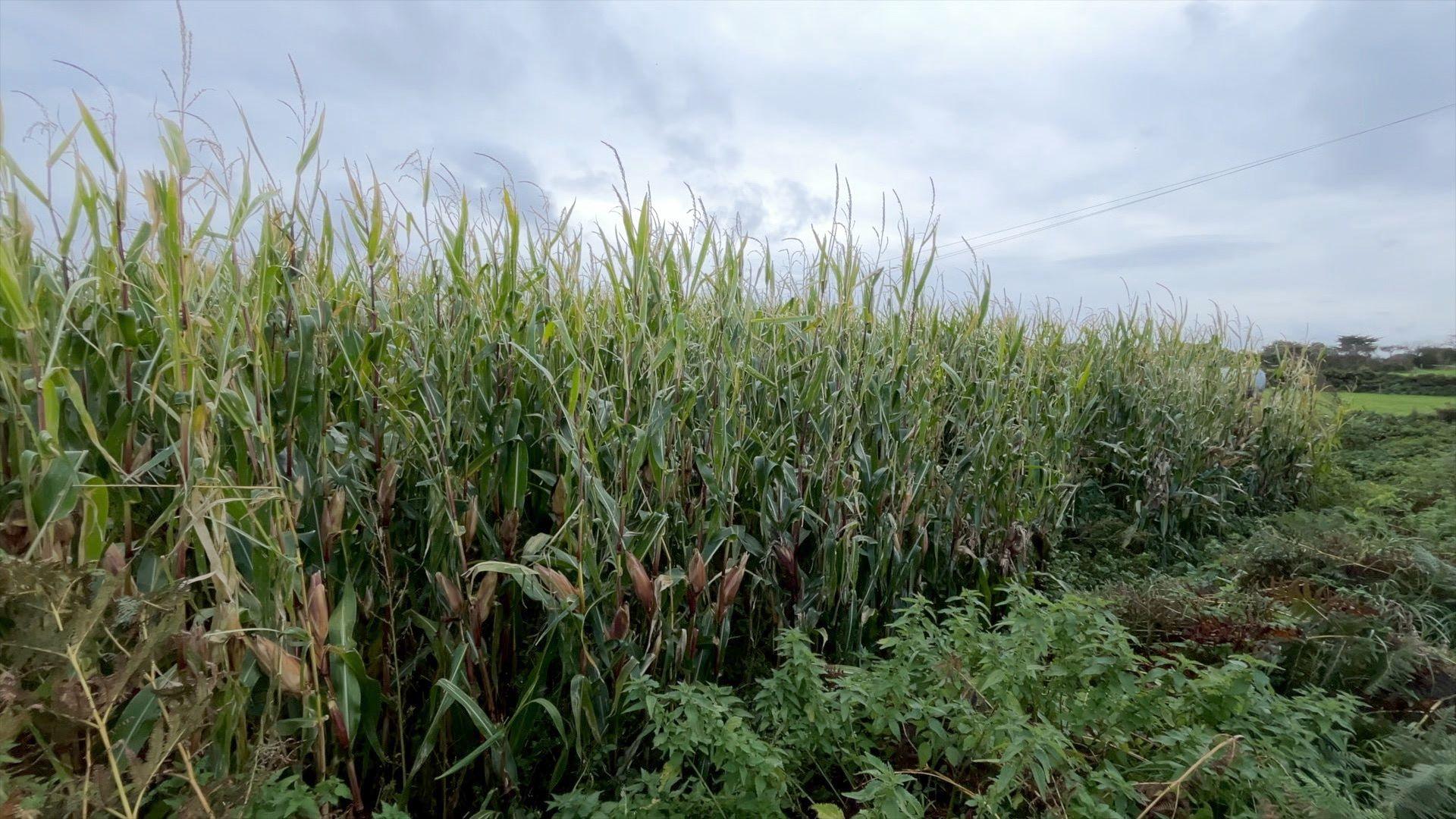Cutting fertiliser use yields results for farmer

Angus Gowthorpe has dramatically reduced his use of fertiliser
- Published
A farmer who dramatically cut back on his use of a harmful fertiliser has said he has improved the health of his crops and "significantly reduced" his costs.
Angus Gowthorpe introduced the process of regenerative agriculture at his farm in Riccall, North Yorkshire, 11 years ago to address the declining health of his soil.
Research published earlier this year found levels of the greenhouse gas nitrous oxide, which is released from fertilisers, were rising faster than those predicted in a worst-case scenario.
Mr Gowthorpe said his crops were "so much healthier by having a healthier soil".
Instead of ploughing the land on his 450-acre farm, Mr Gowthorpe now drills the next crop into the residue of the previous one.
By doing so, the carbon dioxide in the soil which would normally be released during the ploughing process does not get into the atmosphere.
He said: "Our yields have been maintained, but our costs are significantly down and the amount of plant-protection products or sprays that we are using is significantly down, as well as the nitrogen being down, because the plants are so much healthier by having a healthier soil."

Dr Wilson's research has found nitrous oxide levels are rising faster than predicted
According to the International Institute for Sustainable Development, "a significant part of the food that we produce and consume depends on the use of synthetic fertilizers".
However, Dr Chris Wilson from the School of Earth and Environment at the University of Leeds said concentrations of nitrous oxide in the atmosphere would "continue to rise at alarming rates" unless there was "more considered" use of fertilisers.
"It has the potential to be very damaging," he said.
"It sticks around in the atmosphere for over 100 years and it has strong global warming potential in comparison to CO2."
Dr Wilson, whose research found nitrous oxide levels in the atmosphere were rising faster than predicted, said the greenhouse gas had contributed about 10% of human impact on climate change.
Listen to highlights from West Yorkshire on BBC Sounds, catch up with the latest episode of Look North or tell us a story you think we should be covering here, external.
Related topics
- Published16 October 2024
